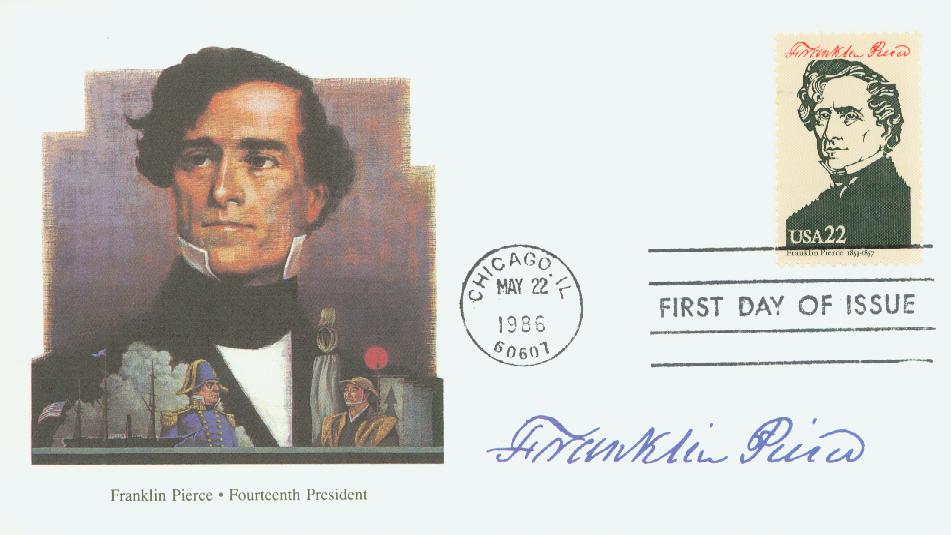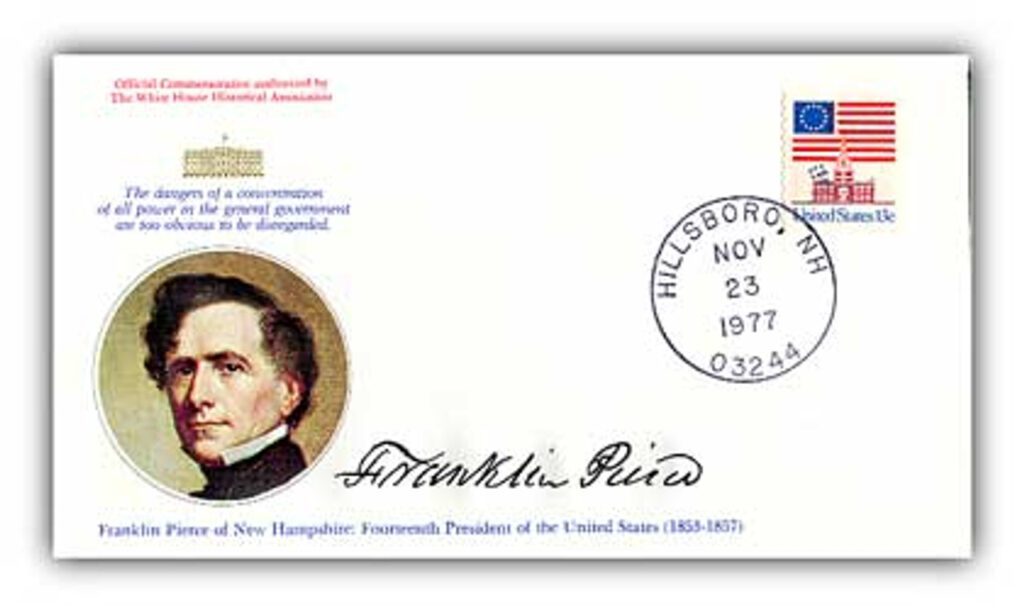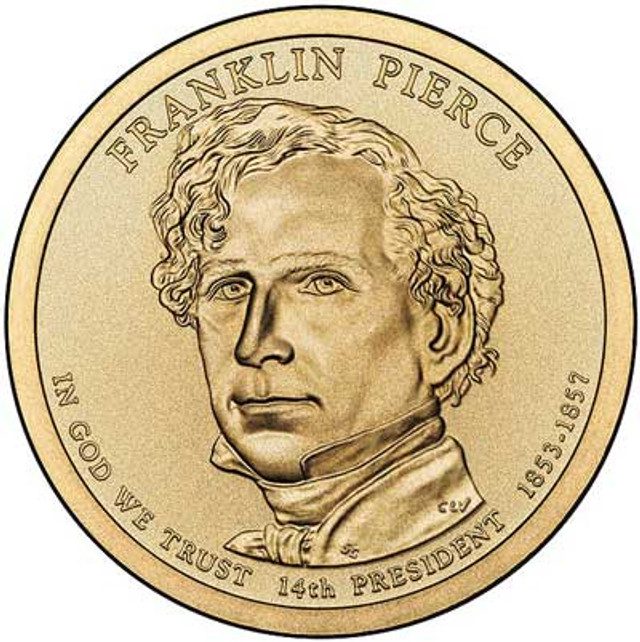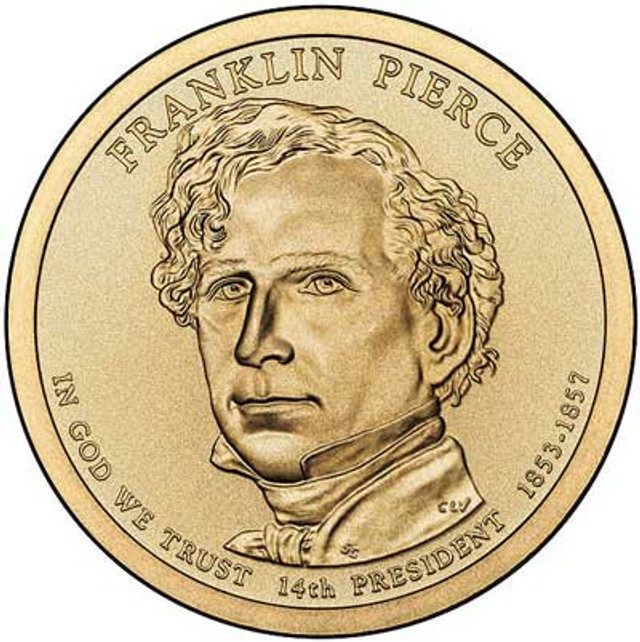
America’s 14th president, Franklin Pierce, was born in Hillsborough, New Hampshire, on November 23, 1804. Despite his strong performance in the 1852 presidential election, Pierce only served one term due to his poor handling of the slavery issue.
Pierce is the only US president to hail from New Hampshire. Franklin’s father, Benjamin Pierce, was a decorated Revolutionary War veteran and active in state politics, including two terms as governor. At the age of 12, Franklin Pierce was sent to Hancock Academy to study. Pierce reportedly became homesick and walked home fourteen miles barefoot. His father drove him halfway back to the academy, abandoning Pierce on the side of the road without uttering a word.

In the spring of 1820, Pierce transferred to Francestown Academy to prepare for college. He then entered Bowdoin College in the fall, where he began a lifelong friendship with Nathaniel Hawthorne and Henry Wadsworth Longfellow. Pierce’s grades were poor at the beginning of his college career, but improved so much he graduated fifth in his class in 1824. Pierce began studying law under Governor Levi Woodbury and was admitted to the bar in 1827.
Aided by his father, Pierce’s political career advanced rapidly. By 1831, at the age of 27, he was speaker of the New Hampshire House of Representatives. From 1833-37, he served as a US congressman, and from 1837-42 as a US senator. Due to his wife’s dislike of public life in Washington, Pierce resigned from the Senate and established a law practice in Concord, New Hampshire. He served as a brigadier general in the Mexican-American War.
Pierce was a fierce opponent of abolition. This made him extremely popular in the South. As a result, he was nominated as the party’s candidate for US president. Pierce won the election of 1852 by an overwhelming electoral vote margin. At 48 years old, Pierce was the youngest man to become president up to that time.
President Pierce’s policies on slavery proved disastrous. His support of a bill allowing settlers to determine whether slavery would be allowed in the new territories of Kansas and Nebraska led to armed conflict. As soon as the Kansas-Nebraska Act was announced, the new territories were invaded by pro-slavery “Border Ruffians” from Missouri, and abolitionists from the North. This fighting, called “Bleeding Kansas,” served as a prelude to the Civil War. It also created a political storm, destroying the Whig Party and leading to the creation of the Republican Party.
Pierce’s expansionist foreign policy also created a negative public reaction. His attempts to acquire the island of Cuba failed, mostly due to Southern opposition. These states feared that if Spain were to release the black slaves in Cuba, it would lead to a slave revolt in the South.
However, in general, Pierce presided over a time of great prosperity in America. The California gold rush was still attracting people to the West. The federal government aided in the construction of railroads expanding westward. The United States grew through the Gadsden Purchase, as land from Mexico was added to the Territory of New Mexico.
Due to how he handled the issue of slavery, Pierce had grown very unpopular and was not renominated for election. After a period of traveling abroad, he settled in Massachusetts, where he died in relative obscurity on October 8, 1869. Until his death, Pierce remained a harsh critic of President Lincoln, believing the president could have avoided the Civil War.
| FREE printable This Day in History album pages Download a PDF of today’s article. Get a binder or other supplies to create your This Day in History album. |
Discover what else happened on This Day in History.




Thanks Mystic for a history lesson of one of our lesser known presidents.
First President to have a Christmas tree in the White House, or so I have read.
The wrong man at the wrong time, but what can you do? Well, he was replaced an even worse man at the wrong time…James Buchanan.
Thanks for the great information. Franklin Pierce needed to educate himself to be a better President in which he was not especially over the slavery issues. The Republicans Party came out around this time.